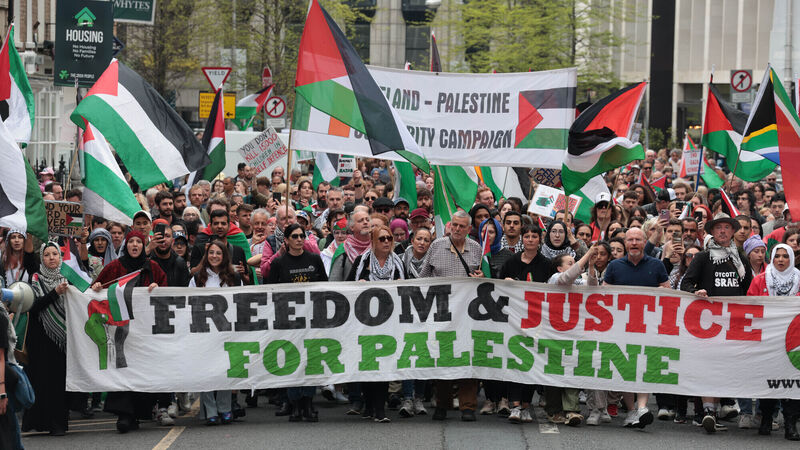Palestinian recognition 'not the perfect time, but the right time'

Thousands of people took part in a national march for Palestine in Dublin last week. The march called for the Government to sanction Israel for genocide. Picture: Leah Farrell/ RollingNews.ie
Standing on the steps of Government Buildings, Simon Harris' announcement was the culmination of years of desire on the Irish side and months of planning among a group of "like-minded" countries who see the act as more than merely symbolic. It came after government dinners, meetings and "constant contact" with the Spanish prime minister, Pedro Sánchez.














